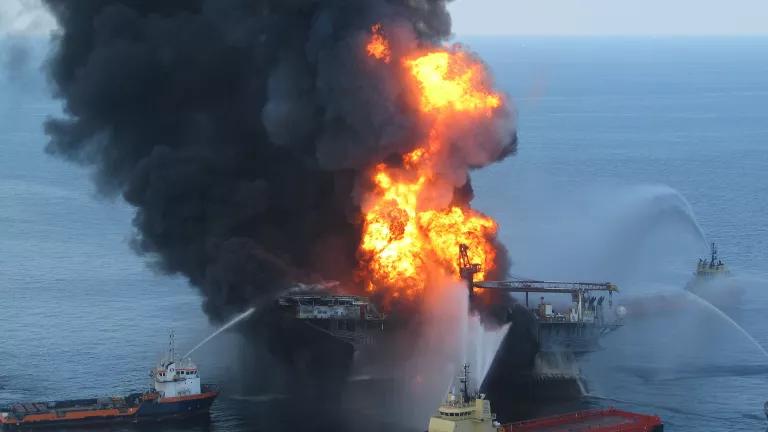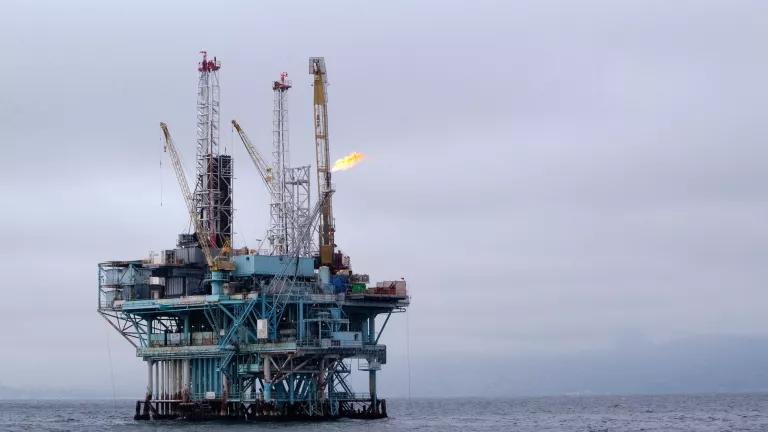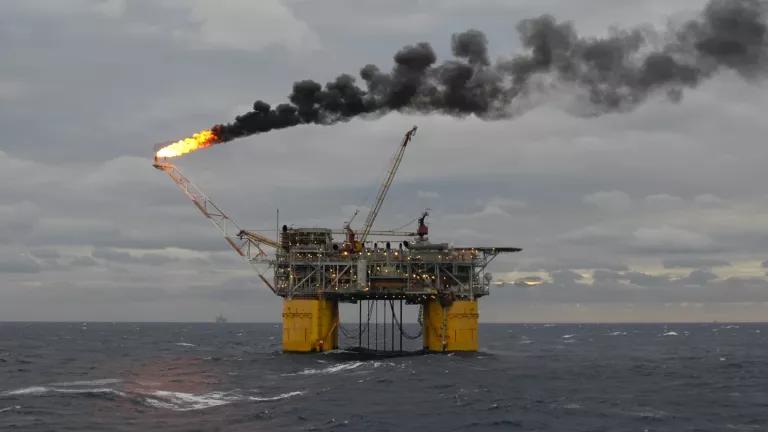Hearings Question Oil and Gas Leasing in Federal Waters
Recent House and Senate hearings on the future of offshore oil and gas leasing raised questions about how best to phase out leasing of our federal waters to oil and gas companies.

Dr. Cliff Kapono testifying before the House Natural Resources Committee
Recent House and Senate hearings on the future of offshore oil and gas leasing raised questions about how best to phase out leasing of our federal waters to oil and gas companies. There is no question that in order to address the climate crisis, protect coastal communities, and ensure a healthy ocean, we need to transition--justly and equitably--to a clean energy future.
House hearing meets the moment
The House Natural Resource Committee hearing, chaired by Rep Alan Lowenthal, heard from witnesses representing coastal communities and businesses, who emphasized the economic, health, and recreation benefits that come from a clean ocean. Many of them spoke on the need to stop offshore leasing.
The Committee heard testimony on a package of bills that protect ocean areas. “Our coasts must stay closed to leasing, full stop,” said Rep. Mike Levin of California’s 49th congressional district, sponsor of a bill to ban offshore leasing in the southern California planning area. “I have strongly urged the new Administration to move forward with a complete reversal of the Trump position,” he said. This is the type of leadership we need from Congress.
Cynthia Sarthou, executive director of the organization Healthy Gulf, spoke about the disproportionate impact on environmental justice communities. These are individuals and families who live at the very epicenter of offshore oil and gas production and amidst the infrastructure of the refining and petrochemical industries.
“All of this activity carries with it incredible risk and the potential for broad impacts for the residents and the wildlife of the Gulf,” Sarthou said. “The coastal communities of the Gulf region have borne a significant burden so that the U.S. could meet its energy needs. It is time that the country repay them by devising a road map for transitioning away from oil and gas development in the region”
Dr. Cliff Kapono, professional surfer, chemist, and journalist, spoke about how Hawaii, his home, supports an economy that relies on a healthy ocean.
"Unlike oil and gas drilling, ocean and coastal tourism is an economic driver that provides a never ending source of jobs, income, and opportunities for small businesses on every coast."
Senate hearing misses the mark
Unfortunately, in the Senate Committee on Energy and Natural Resources hearing, most members missed an opportunity to address the crucial issues we’re facing: a climate crisis and an opportunity to transition to clean energy sources. While Senator King seemed to grasp the gravity of the moment by reminding us that “our purpose here is to keep Wyoming and Nevada from becoming coastal states,” many lawmakers appeared fixated on how to hold onto the energy sources of the past that no longer meet our country’s needs.
Bureau of Ocean Energy Management (BOEM) Director Amanda Lefton, one of the witnesses, said that BOEM is looking toward the future and assessing what role it should play in a clean energy future. We hope that she leads the agency away from issuing new offshore oil and gas leases and focuses on a ramp up of responsible renewable energy instead.
What comes next?
The House is well poised to move forward with a series of important bills that protect our coasts from dangerous and dirty fossil fuel development. However, as we’ve written, we cannot forget to include the Arctic and Gulf in plans to phase out oil and gas leasing.
It’s now time for the Senate to do the same - the West Coast Protection Act is a great start, but more of our coasts need protection. Congress should act to protect coastal economies while addressing climate change.
A powerful new report from the global energy organization, the International Energy Agency (IEA), finds that to avoid catastrophic climate change we cannot invest in new fossil fuel projects. Ending new leasing in federal waters is a crucial part of ensuring we maintain a stable climate and healthy ocean.





